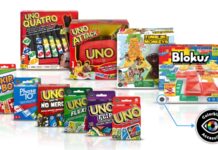Home freezing is back in fashion for its cost savings, convenience, health and environmental benefits
JOHANNESBURG, South Africa – 11 October, 2016 – Many South Africans are looking for ways to make the most of their disposable incomes and be more spending-savvy. At the same time, environmental concerns mean everyone should be thinking green when it comes to the products they buy. In order to save money on food, reduce your carbon footprint and – most importantly – ensure your family gets all the nutrition they need, households should be returning to the time-honoured practice of home freezing.
“Home freezing allows you to buy fresh produce in season, when it is at its lowest price and safely preserve it for use later. Home freezing also enable you to cut electricity costs by preparing larger quantities of cooked food and saving portions to be quickly defrosted and reheated in a microwave at a later stage. With careful planning, home freezing can help individuals and families slash their monthly grocery bills,” says Michael McKechnie, Director: Digital Appliances at Samsung South Africa.
Meals may safely be frozen for between three and twelve months, depending on the items. Using a frost free freezer extends the life of perishables, because there is no requirement to regularly defrost the freezer and risk foods defrosting while you do so. “Properly freezing foods retains all their nutritional value and assists busy parents with preparing wholesome dishes for later reheating, whenever the family needs quick and easy meals,” says Samsung Brand Ambassador, Jo-Ann Strauss. She adds that it is crucial to her to keep foods fresh and nutritious for longer, particularly when it comes to ensuring a healthy diet for her children.
Top tips and tricks for home frozen foods:
- Buy fresh vegetables in season and prepare these for freezing by peeling, chopping or slicing and blanching for one to five minutes in salted, boiling water. Submerge the vegetables in ice water, dry well and store in labelled freezer bags or airtight containers in the freezer for up to twelve months. Onions, pumpkin, carrots, green beans, corn, spinach, chard and kale are among the vegetables that freeze well.
- For home-frozen wedges or oven chips, peel and cut potatoes or sweet potatoes and partially cook in boiling water. Drain and dry, then freeze the wedges or chips in a single layer on a baking tray. Once frozen, they may be transferred to a labelled freezer bag for later use.
- Freeze sliced soft fruit and summer berries for year-round use in smoothies and desserts, by washing, freezing in a single layer on a baking tray, then transferring the frozen berries to a labelled freezer bag.
- Make a delicious fruit ice cream by simply freezing bananas and whipping these up in a blender until creamy.
- Prepare colourful ice lolly treats by adding a variety of fresh fruit and yogurt to ice lolly moulds and then freeze.
- Make the most of abundant summer tomatoes by cooking large quantities of simple pasta sauce and freezing batches in smaller airtight containers for convenient dinners all year round.
- Ensure supplies of freshly-baked treats whenever you need these, by preparing large quantities of biscuit and pastry dough or muffin mixture and freezing it in smaller portions for quick defrosting and baking later. You can also successfully freeze baked pastry cases for quick defrosting and filling ahead of special occasions.
“Home freezing is back in fashion as consumers seek better value and more wholesome meals for their families,” says McKechnie. “Samsung refrigerators are designed to support this trend with larger capacity and frost-free energy efficient operation in freezer compartments, to extend the life of perishables and make home freezing a pleasure.”



























